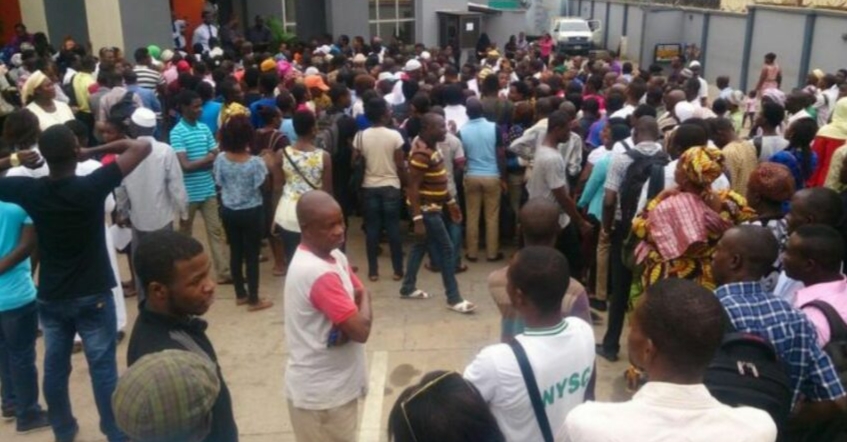
Nigerians besiege banks over BVN registration
BVN registrations hit 61.16m ahead of CBN deadline
According to the latest data released by the Nigeria Inter-Bank Settlement System (NIBSS), the total number of registrations for the Bank Verification Number (BVN) in Nigeria has surged to 61.16 million as of March 15, 2024.
This marks an increase of 674,280 new registrations since late January when the BVN database stood at 59.9 million.
The notable uptick in BVN registrations in recent months can be attributed to the Central Bank of Nigeria (CBN) ‘s announcement that all bank accounts without BVN would be frozen starting in April 2024.
Experts say the directive likely catalyzed individuals to ensure compliance with the BVN requirement.
In December of the previous year, the CBN had mandated all financial institutions to electronically revalidate the BVN or National Identification Number (NIN) attached to all accounts/wallets by January 31, 2024.
”Failure to comply with this directive would result in accounts being subjected to a “Post No Debit” restriction, effectively freezing the funds in those accounts,” the apex bank announced.
It is worth noting that while the number of active bank accounts in the country for 2023 has yet to be disclosed, the NIBSS data from 2022 revealed a total of 151 million active bank accounts, representing a 13% growth compared to the previous year.
This starkly contrasts with the BVN registrations, which stood at 56 million by the end of the same year.
Industry analysts suggest that the disparity between the number of accounts and BVN registrations may be insignificant, as multiple accounts can be linked to a single BVN.
However, according to the Enhancing Financial Innovation and Access (EFInA) Access to Financial Services in Nigeria 2023 Survey report, approximately 5% (3 million) of banked adults still need a BVN or NIN.
In light of the impending deadline set by the CBN, which mandates the freezing of accounts without BVN or NIN, financial institutions are expected to intensify efforts to ensure compliance among their customers.
The directive’s enforcement is poised to transform the banking landscape significantly, emphasizing the importance of digital identity verification and enhancing financial inclusion across Nigeria.
